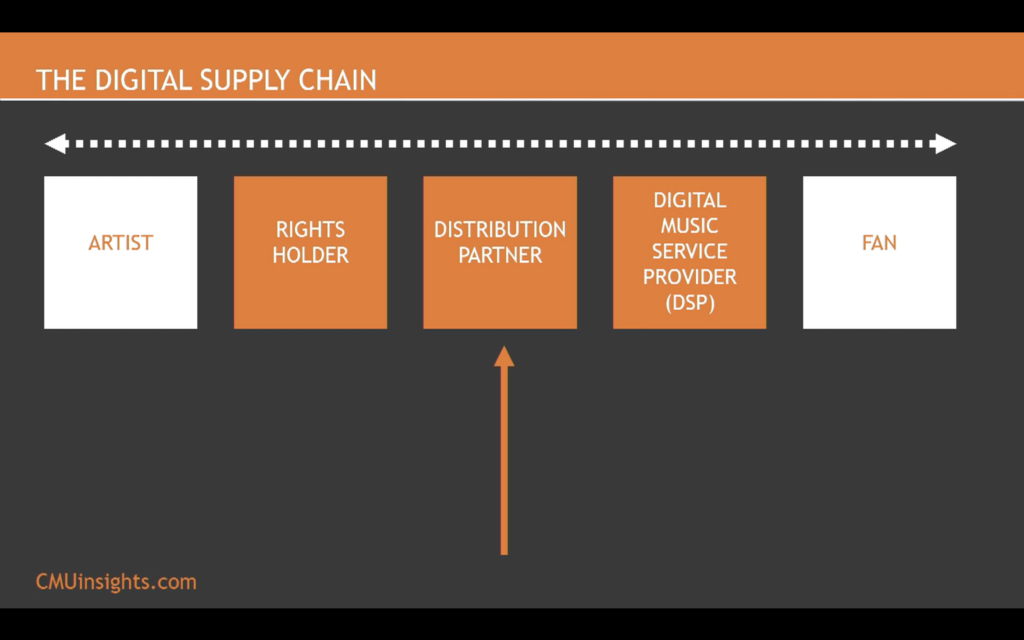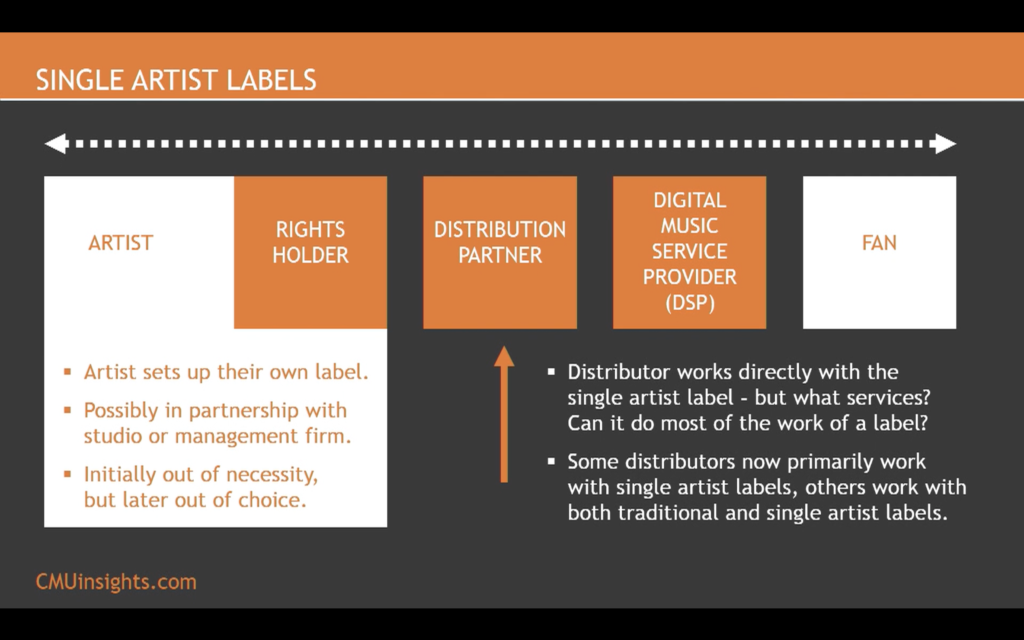Tallinn Music Week Conference 2020: Distribution Revolution
Choosing Business Partners in the Streaming Age
Estonian Academy of Arts, 29 August, 2020.
Photo: Aron Urb
Speakers
Chris Cooke (UK), co-founder and MD of CMU, moderator
Hannes Tschürtz (AT), Founder of INK Music
Henrik Ehte (EE), Founder of Funk Embassy
Kat Jarby (DK), Founder of KAJA Management
As the music industry has evolved, so too has the world of music distribution. While the lines were clear in the past, they now run in a more complicated pattern across the industry. To better understand these patterns and dynamics, Chris Cooke provided an overview of Digital Revolution – a research study conducted by CMU, an organisation whose task is to navigate and understand the music business, and pass that understanding on in turn (www.completemusicupdate.com). The research was commissioned by the Association of Independent Music (AIM), a trade organisation that traditionally included record companies, management, publishing and distribution; however, with the evolution of the music industry, these distinctions are now harder to make.
The need for the study Distribution Revolution
Chris Cooke explained that although a lot has been said about the evolution of recorded music from the consumer’s point of view, there has also been a significant change behind the scenes: in the way artists get their recorded music to the market. The idea of distribution is not new, however, it has not been as closely analysed. With an increasing number of start-ups offering services essentially linked to distribution, the need arose for organising and categorising the market in order to review, explain and explore the challenges and opportunities.
CMU surveyed stakeholders over the course of a year, and the results are available in the report: cmulibrary.com/distributionrevolution-report/.
The Distribution Revolution findings in 5 easy steps
What does the distributor do? Who are the different entities involved in the digital supply chain? Between the artist and the fan, you have 3 businesses: the rights holder, the distribution partner, and the digital music service provider (DSP).
 Then. Source: Chris Cooke, TMW conference presentation.
Then. Source: Chris Cooke, TMW conference presentation.
The rights holder manages the copyrights (the “record label” in traditional terms), however, nowadays the artist may well hold the rights themselves. The DSP is Spotify, Apple Music, Deezer, etc. The distributor, i.e. the object of this study, is the instance in the middle that takes the track from the owner to the DSP.
Step 1: Digital services want to licence as much content as possible through as few deals as possible.
Step 2: Today rights holders basically have three ways to get their music onto all the digital music services: direct deals, merlin deals, and distributors.
Step 3: Distributors have greatly expanded the range of services they offer their clients, including pitching and marketing, creating content, reaching out to the media, advertising campaigns, etc.
Step 4: A big trend is that distributors have expanded their client base, so that they now also work directly with artists, while they worked only with record labels in the past.
Step 5: Whether you are an artist or a label, there are many things to consider, when choosing which distribution provider to work with. The range of services provided and used also determines the cost.
 Now. Source: Chris Cooke, conference presentation.
Now. Source: Chris Cooke, conference presentation.
Questions to the panel:
Are you working with a single distributor or several, depending on the artist you are working with?
Hannes Tschürtz replied that they work with one company Belief, for both physical and digital distribution, because they have worked together for close to a decade. For marketing, they use a lot of services, so the distributors are an extension of the label business. For smaller releases, he feels, choosing someone independent might be better. They see their label as a springboard, so management is the focus, however, if they can sign off an artist to a bigger label, they do. They have relationships with large record companies, but also with independent labels to figure out what’s best in for each artist.
Kat Jarby, however, said that most artists either have their own label or work with a tiny one. She also started her own, to be able to manage artists’ rights and work with the distributors. She primarily works with Orchard, because the team is familiar. Her strategy has been to push the bigger distributors to understand experimental music.
Henrik Ehte has been releasing as a manager since 2015 on a trial and error basis with different distributors. In the process of moving everything to Kudos, since it offers more services and simpler bookkeeping, he is trying to figure out how to move without losing stats and listens.
Chris Cooke added that this is an important point to emphasise: when self-releasing do shop around to work out what the differences are between distributors. But when you move, will you lose data?
Some have different distributors for physical and digital. Is it important to be handled by the same company?
Hannes Tschürtz said that they have both in one at Rough Trade, because it makes things easier. Even manufacturing is handled by the company. With Rough Trade, everything is now centralised. Henrik Ehte agreed that it is a lot easier. If physical sales are a bigger part than digital, it makes sense to have a partner who is good at the physical sides and the genres you work with. However, when it comes to the choice of label, whether to go major or indie, it is a matter of assessing what you are able to do in terms of time and quality of work, Tschürtz added. They outsource to a distribution partner, so the costs are higher, but the work is amplified and of a better quality.
If you were talking to an artist or label, trying to pick a distributor, what to ask before signing up?
In Kat Jarby’s opinion, the key people you work with must understand you. She is less careful about the money and percentages, because if she believes in the people working with the music, she knows that they are doing the best they can.
Since Estonia is a small place, Henrik Ehte said that he can take care of the physical distribution himself, with the help of assistants. However, when it comes to digital distribution, he recommends not jumping into cold water, asking around, reading the Distribution Revolution report, doing your research, and not fearing changing platforms – in the end, it’s not that hard.
And as a last tip, Chris Cooke pointed out that it is always a must to have a backup of all your .wav files, metadata, etc., because if you have it all yourself, that is one less issue to resolve when changing distributors.
TMW 2021 passes are on sale for Early Bird price until 20 December at TMW webshop.
The DigiPRO subscription includes access to the TMW PRO platform, which includes the TMW 2020 conference panel streams. DigiPRO pass holders can also upgrade to PRO Pass (physical & online participation) later just by paying the price difference.
TMW 2021 takes place on 6 – 9 May.